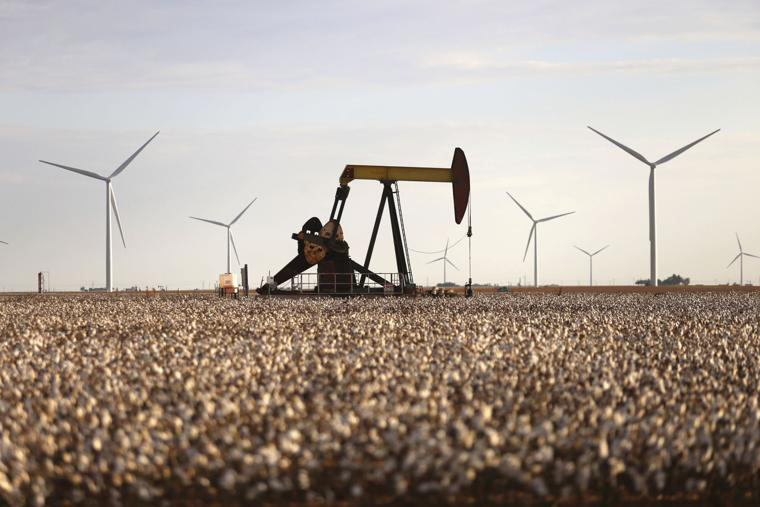
WASHINGTON, D.C. Reflected in the goals of Congressman August Pfluger and the Texas Farm Bureau, the writing of a new Farm Bill every five years in the House Agriculture Committee is a very complex undertaking.
Representing some of Texas’ most important cotton-producing areas in the 20 counties of his 11th Congressional District, Pfluger says cotton farmers should get close attention in the 2023 Farm Bill because their costs of production have risen by 24 percent since 2018.
“When converted to a seed cotton basis, the reference price of 36.7 cents per pound falls well short of the current costs,” said Pfluger, a San Angelo Republican who represents Ector County.
“The statutory seed cotton reference price in the Agriculture Risk Coverage and Price Loss Coverage commodity safety net programs should be increased to better reflect current costs of production.”
He added that the new Farm Bill “should enhance cotton’s safety net by eliminating the prohibition on simultaneous enrollment in the Stacked Income Protection Plan and PLC.
“Growers who do not have a seed cotton base or who choose to forego enrollment in the seed cotton ARC/PLC program should have the opportunity to purchase STAX coverage at the 95-percent level,” Pfluger said.
In a comprehensive review of his agriculture-related priorities, he said his district “is one of the most abundant suppliers of agriculture resources in the United States and farmers and ranchers here and across the country deserve a Farm Bill that allows them to keep producing the food and fiber our country needs to survive.
“It is also imperative to protect and strengthen programs that help livestock producers return to normal operations following adverse weather, attacks by predators or extreme conditions.”
He said the Agriculture Department’s feral hog program should include additional legislation for wolves and birds of prey.
Pfluger said Title 1 payments should be based on historic rather than planted acreage.
He said the Farm Bill should establish U.S. Department of Agriculture research funding restrictions on institutions of higher education that have a relationship with the Confucius Institutes of the People’s Republic of China.
“The Chinese Communist Party is utilizing Confucius Institutes to infiltrate American university campuses and engage in espionage, steal our intellectual property and funnel information back to the People’s Liberation Army,” Pfluger said.
“Under no circumstances should USDA funds be pulled from American producers to enrich the CCP or the PLA.”
The Texas Farm Bureau seeks a limited irrigation category in the Risk Management Agency crop insurance program, support for a stock tank and farm pond cleanout program and support for livestock market owners to invest in the ownership of small, very small and regional meat packing and processing facilities.
Other 2023 TFB goals include more money for feral hog control programs and pilot projects and opposition to any foreign entity or persons getting tax credits, abatements, incentives or any other in-kind contributions that affect the taking of agricultural land in the U.S.
The TFB also opposes any Securities & Exchange Commission ruling that would require emissions reporting that could directly or indirectly impact farmers and ranchers.
The TFB backs deferring recognition of income for one year for all or a percentage of crop insurance or indemnity payments.
Pfluger wants improved access to the Stacked Income Protection Plan, he said, because growers enrolled in ARC-PLC are currently limited in their access to crop insurance products due to a prohibition on the purchase of STAX for enrolled farms.
“It is critical to look at current ad-hoc disaster programs because the Wildfires and Hurricanes Indemnity Relief Program and Emergency Relief Program are a lifeline for farmers and ranchers dealing with extreme weather conditions,” the congressman said.
“However, it is becoming increasingly difficult to extend these programs and get them implemented in a timely manner. The 2023 Farm Bill should make disaster programs more palatable and streamlined while working in tandem with current crop insurance programs.”
Pfluger also wants to maintain the Pima Agriculture Cotton Trust Fund, the Wool Apparel Manufacturers Trust Fund and the Wool Research and Promotion Program.
“These programs represent a collaborative effort of the domestic growers and producers of raw Pima Cotton and wool as well as domestic manufacturers of wool and cotton yarns, fabrics and apparel,” he said. “They respond to various tariff and trade policies that have disadvantaged these important American agricultural and industrial sectors and they are essential to placing these sectors on a more level playing field against foreign competitors.
“They also maintain essential domestic capabilities in a highly globalized supply chain, which has significant implications for national security and health care preparedness.”



